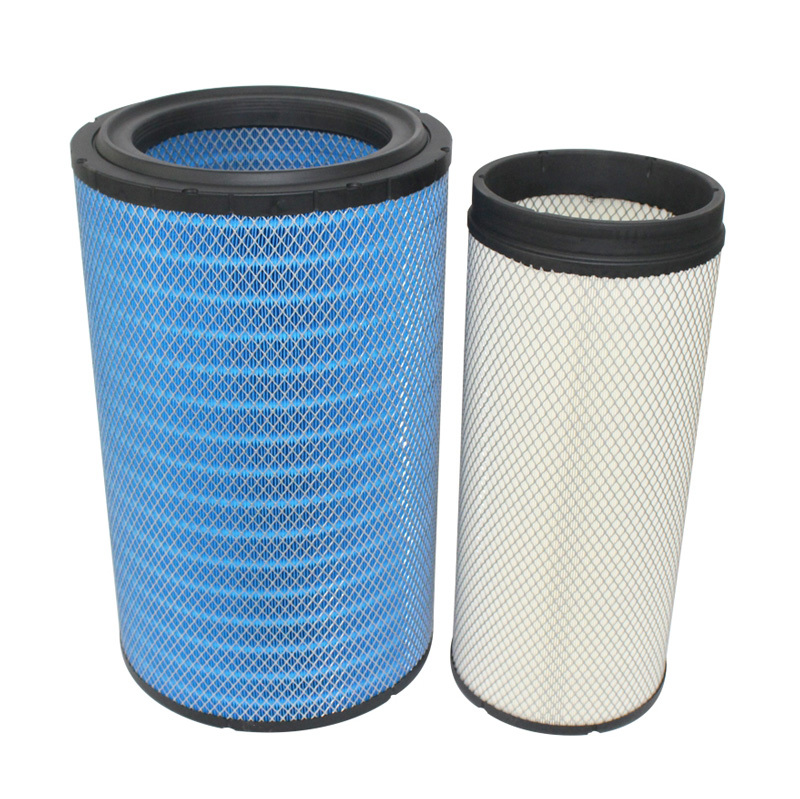Built-In Air Cabin Filters: A Key Component of Modern Automobile Design
Aug 21,2025
Built-In Air Cabin Filters: A Key Component of Modern Automobile Design Table of Contents 1. Introduction to Built-In Air Cabin Filters 2. Understanding the Functionality of Air Cabin Filters 3. Design and Technology of Modern Air Cabin Filters 4. The Benefits of Built-In Air Cabin Filters 5. Common Issues and Maintenance Tips 6. The Future of Air Cabin Filter Technology

Built-In Air Cabin Filters: A Key Component of Modern Automobile Design
Table of Contents
- 1. Introduction to Built-In Air Cabin Filters
- 2. Understanding the Functionality of Air Cabin Filters
- 3. Design and Technology of Modern Air Cabin Filters
- 4. The Benefits of Built-In Air Cabin Filters
- 5. Common Issues and Maintenance Tips
- 6. The Future of Air Cabin Filter Technology
- 7. Comparison with Other Filter Types
- 8. Conclusion
- 9. Frequently Asked Questions
1. Introduction to Built-In Air Cabin Filters
In an era where automobile manufacturers are increasingly prioritizing passenger comfort and health, **built-in air cabin filters** have emerged as a critical component of modern vehicle design. These filters serve a vital role in ensuring clean and breathable air within the cabin, significantly enhancing the driving experience. This article explores the functionality, design, and overall importance of air cabin filters, as well as their maintenance and future developments.
2. Understanding the Functionality of Air Cabin Filters
Air cabin filters are designed to trap pollutants, dust, and allergens that may enter a vehicle's cabin through the air intake system. They function by filtering out harmful particles that can impact both the health of passengers and the overall performance of the vehicle's air conditioning and heating systems.
The Role of Filtration
The primary function of air cabin filters is to ensure that the air circulating within the vehicle is free from contaminants. This filtration process helps to:
- **Reduce Allergens**: Pollen, mold spores, and dust mites can trigger allergic reactions. A good air cabin filter minimizes the presence of these particles.
- **Combat Odors**: Filters can trap unpleasant odors from outside sources, ensuring a pleasant environment inside the vehicle.
- **Improve Air Quality**: Clean air enhances the overall driving experience, contributing to a more enjoyable and healthy ride.
3. Design and Technology of Modern Air Cabin Filters
The design of air cabin filters has evolved significantly over the years, leveraging advancements in material science and engineering. Modern filters utilize a combination of synthetic and natural fibers that offer enhanced filtering capabilities.
Types of Air Cabin Filters
There are several types of air cabin filters available, each designed to meet different needs:
- **Particulate Filters**: These filters primarily capture dust and pollen particles.
- **Activated Carbon Filters**: Equipped with a layer of activated carbon, these filters excel at odor removal and can absorb harmful gases.
- **HEPA Filters**: High-Efficiency Particulate Air (HEPA) filters are designed to trap 99.97% of particles, making them ideal for those with severe allergies.
Advancements in Filter Technology
Recent innovations in filter technology involve the use of nanofibers and electrostatic filtration, enhancing the filters' ability to capture smaller particles without restricting airflow. These advancements not only improve air quality but also contribute to the efficiency of the vehicle's heating and cooling systems.
4. The Benefits of Built-In Air Cabin Filters
The integration of built-in air cabin filters in modern vehicles provides numerous benefits that extend beyond simply filtering the air. Here are some key advantages:
Enhanced Passenger Comfort
Clean air significantly improves passenger comfort during long drives, making the experience less stressful and more enjoyable. This is especially beneficial for families with children or individuals with respiratory issues.
Longer Vehicle Lifespan
By preventing dust and debris from entering the vehicle’s interior, air cabin filters contribute to the longevity of the vehicle’s components, including the HVAC system. This can lead to reduced maintenance costs over time.
Fuel Efficiency
A clean air cabin filter allows for optimal airflow, which can improve fuel efficiency. When the system operates efficiently, it consumes less energy and can contribute to lower overall fuel costs.
5. Common Issues and Maintenance Tips
Like any other automotive component, air cabin filters can encounter issues that may compromise their effectiveness. Being aware of these problems and understanding maintenance practices can enhance the lifespan and performance of the filters.
Signs of a Clogged Filter
A clogged air cabin filter can lead to noticeable changes in air quality and vehicle performance. Common signs include:
- **Reduced Airflow**: If the air coming from the vents seems weak, it may indicate a clogged filter.
- **Odors**: A musty or unpleasant smell can be a sign that the filter is saturated with contaminants.
- **Increased Allergy Symptoms**: If passengers develop allergy symptoms while driving, it may be time to replace the filter.
Maintenance Recommendations
To maintain the effectiveness of built-in air cabin filters, consider the following tips:
- **Regular Inspections**: Check the filter during routine maintenance visits. Most manufacturers recommend replacing it every 12,000 to 15,000 miles.
- **Use High-Quality Filters**: Investing in high-quality filters can improve air quality and enhance the vehicle’s performance.
- **Consult the Owner’s Manual**: Always refer to the vehicle’s owner manual for specific maintenance schedules and recommendations.
6. The Future of Air Cabin Filter Technology
As automotive technology continues to advance, the future of air cabin filters looks promising. Manufacturers are exploring innovative materials and designs that promise improved filtering capabilities.
Integration with Smart Technology
The rise of smart technology in vehicles may lead to air cabin filters equipped with sensors that monitor air quality in real time. These sensors could alert drivers when it’s time to replace the filter, ensuring optimal performance.
Sustainability and Eco-Friendly Options
With increasing environmental awareness, manufacturers are also focusing on developing **sustainable air cabin filters** made from biodegradable materials. This shift not only addresses environmental concerns but also caters to eco-conscious consumers.
7. Comparison with Other Filter Types
While air cabin filters play a vital role in maintaining indoor air quality, it’s essential to understand how they compare with other types of automotive filters.
Engine Air Filters vs. Cabin Air Filters
Engine air filters prevent contaminants from entering the engine, while cabin air filters focus on the air quality inside the vehicle. Both filters are crucial for optimal vehicle function but serve different purposes within the automobile.
Oil Filters
Oil filters are essential for maintaining engine health by filtering impurities from engine oil. While they serve a different function than cabin filters, they collectively contribute to the vehicle's overall performance and longevity.
8. Conclusion
Built-in air cabin filters represent a significant advancement in automobile design, contributing to passenger comfort and health. As technology continues to evolve, these filters will likely become even more efficient and integral to modern vehicles. By understanding their importance and ensuring regular maintenance, drivers can enjoy a cleaner, healthier driving environment.
9. Frequently Asked Questions
What are the signs that my air cabin filter needs replacement?
Common signs include reduced airflow from the vents, unpleasant odors, and increased allergy symptoms during driving.
How often should I replace my air cabin filter?
Most manufacturers recommend replacing the air cabin filter every 12,000 to 15,000 miles, but this can vary based on environmental conditions.
Can I clean my air cabin filter instead of replacing it?
While some filters can be cleaned, most should be replaced to ensure optimal performance and air quality.
Are all air cabin filters the same?
No, there are various types of air cabin filters, including particulate, activated carbon, and HEPA filters, each designed for specific functions.
How can I improve the air quality in my vehicle?
Regularly replacing your air cabin filter, keeping the interior clean, and avoiding strong-smelling products can help enhance air quality in your vehicle.
TAG:
Contact Us







